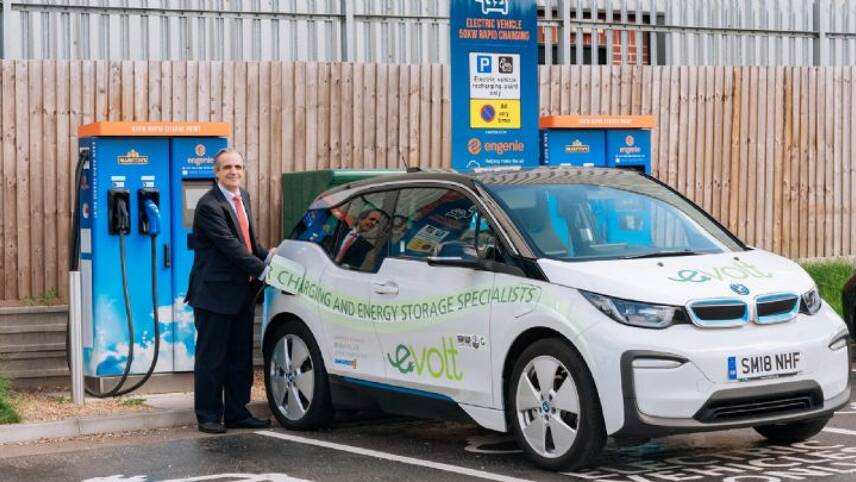Register for free and continue reading
Join our growing army of changemakers and get unlimited access to our premium content

100 of the new charging points will be installed before Christmas
The company has today (11 July) set out proposals to install more than 2,000 rapid EV charging points across the UK, all of which will be publicly available and hosted at locations such as shopping centres, retail parks, pubs, restaurants and leisure centres.
Each of the 50kW charging points will be fitted with a “brand agnostic” lead, making it compatible with all EVs currently available on the UK market. Engenie claims the technology, which is powered using 100% renewable electricity, can deliver 80 miles of charge in 30 minutes.
The UK currently plays host to 2,189 publicly available rapid EV charging points, according to the latest data from ZapMap. Engenie therefore believes its plans will serve to double the nation’s stock and has pledged to install the first 100 new chargers by Christmas 2019.
“The EV market is marching into the mainstream; private companies are now seizing the EV investment opportunity and nearly 75% of car buyers are considering an EV as their next vehicle,” Engenie’s chief executive officer Ian Johnston said, citing recent research by Auto Trader.
“Those organisations offering public car parking can position themselves for the future by providing new value to customers and driving increased footfall by installing rapid chargers.”
EV drivers looking to use the new charge points will not be made to pay a membership or connection fee, as the system works using a ‘pay-as-you-go’ contactless payment model.
The expansion of Engenie’s network is being funded by a £35m pot from Cube Infrastructure Fund II.
Charging ahead
Over the past 12 months, Engenie has built its charging network through a series of commercial partnerships with the likes of M7 Real Estate and pub and brewing giant Marston’s – the latter of which is aiming to host 400 chargers across its UK-wide estate
These moves have been made during a period of repeated warnings that the UK’s electric transport ambitions could be held back by a lack of suitable charging infrastructure. PwC, for example, has claimed that UK’s EV stock reached 134,000 vehicles in 2017 – a 54% increase on 2016 figures – but that there are only 13,500 charging points to support these vehicles.
Similar findings have been recorded by the likes of the Department for Transport (DfT) and Bloomberg New Energy Finance (Bloomberg NEF). Indeed, this line of thinking was also re-iterated in this week’s progress report to Parliament by the Committee on Climate Change (CCC), which slams the Government for its “ramshackle” climate change policies – particularly in the transport, agriculture and built environment spheres.
In response to the issue, a string of stakeholders across the policy, private sector and public sector spaces are beginning to either invest in EV charging technologies and supporting systems for the first time, or to bolster their commitments in this space.
Sending the EV market into hyperdrive
In related news, today will also mark the opening of the UK’s largest independent EV battery manufacturing facility in Sunderland. Called HYVE and operated by Hyperdrive Innovation, the factory will produce up to 30,000 EV battery packs each year.
The devices produced at the facility will be sold both in the UK and abroad, with customers having already placed orders including JCB. The heavy equipment giant will use the battery packs to create its first electric excavator.
The opening of the factory has been welcomed by Sunderland City Council and the national Department for Business, Energy and Industrial Strategy (BEIS) alike.
“We are committed, through our Industrial Strategy and Automotive Sector Deal, to establishing the UK as a world leader in battery technology and the HYVE facility will help play a crucial role in us delivering on this ambition,” Business Minister Andrew Stephenson MP said. “Its customers include some of the world’s most recognisable brands, from major supermarkets to manufacturers of off-road vehicles, all of whom will benefit from having high-quality batteries, made right here in the UK.”
Sarah George


Please login or Register to leave a comment.